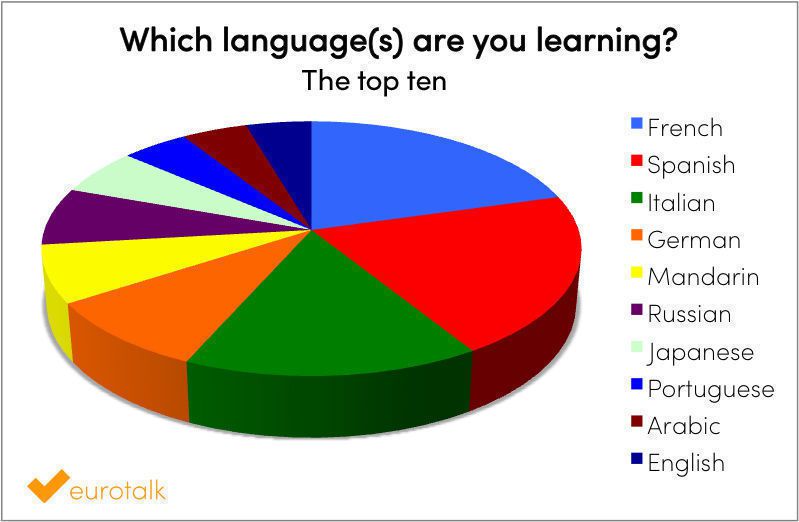3 surprising facts about the relationship between language and music
It’s often said that music is the “universal language of mankind”. Indeed, like language, music has great expressive power, and manages to convey a vast array of sentiments and emotions, even without the use of words. But just how connected are language and music? Research suggests that the relationship between the two may be even stronger than it appears at first glance. Let’s take a look at some of the surprising ways in which language and music are connected.

You’re not likely to confuse Beethoven’s Fifth for Lincoln’s second Inaugural Address, but music and language have more in common than you might think. Image via Derek Gleeson / Wikipedia
1. They share the same basic building blocks
Even on a very basic level, music and language are similar in that both are compositional. This means they are made of small parts that combine to create something larger and more meaningful; in other words, their whole is greater than the sum of their parts.
For example, languages consist of individual words that combine in meaningful ways to create sentences. In isolation, the words “I”, “you”, and “love” don’t mean much — but when combined into a sentence, “I love you”, suddenly they carry great importance.
Similarly, music — at its most basic level — consists of individual notes. Like words, these aren’t particularly meaningful by themselves: hearing an E flat in isolation likely won’t stir up any serious emotions. But when you combine the E flat with a C and a G, you have a C minor chord: something meaningful has been formed.
2. They involve the same areas of the brain
For decades, scientists have isolated specific brain regions that are responsible for the comprehension and production of language. One of the more notable regions is Broca’s area, which is located in the left-hemisphere frontal lobe and plays a crucial role in language comprehension and production. Specifically, Broca’s area seems to be responsible for our ability to use syntax —the structural rules that languages have so that sentences make sense.
Recent studies have also found that Broca’s area is crucial in the comprehension and analysis of music. Indeed, brain scans have found increased neural activity in Broca’s area when subjects heard and interpreted both speech and music. Further, research shows that, compared to non-musicians, musicians have a greater volume of grey matter in Broca’s area, suggesting that Broca’s area may be responsible for both speech and music.
3. Musical training can improve language skills

Image via Montserrat Labiaga Ferrer / flickr
In 2011, developmental psychologists from Justus-Liebig University in Germany conducted a study to examine the relationship between the development of music skills and language skills. To do this, they separated pre-schoolers into two groups, one of which received daily music lessons at school.
Later, they measured the pre-schoolers’ phonological awareness, which refers to their general ability to use and manipulate language. For example, children with good phonological awareness can recognize when words rhyme, can successfully identify individual sounds within words, and can blend together individual sounds to create words. Early phonological awareness has been shown to be a predictor of enhanced reading skills later in life.
The study found that the children who received daily music lessons ended up with higher levels of phonological awareness than those who did not. This suggests that the development of music skills and language skills go hand in hand, which makes sense if music and language are served by the same underlying brain areas.
As you can see, there are more parallels between language and music than meet the eye! On both a descriptive and neural level, language and music have a lot in common. As language learners, you can take advantage of this relationship by incorporating foreign-language music into your daily language-learning routine. In addition to providing you with great music to listen to, you’ll be exercising the same part of your brain that’s responsible for language skills.
Do you listen to music in your target language? What are some of your favorite foreign-language songs? Let us know — leave a comment!
Paul writes on behalf of Language Trainers, a language tutoring service that offers German classes in Dublin, as well as courses for other languages all throughout the world. You can check out their free foreign-language level tests and other language-learning resources on their website. Visit their Facebook page or contact paul@languagetrainers.com if you have any questions or if you’d like more information.
Which language are you learning? The results!
We had a great response to our recent language learning survey; thank you to everyone who took the time to complete it. First things first: we’re delighted to announce that the winner of the iPad mini prize draw is Konstantia Sakellariou. Congratulations, Konstantia – your iPad is on its way!
We wanted also to share a few of our findings with you. Some of the results from the survey were as we expected, others were quite surprising. Here are just a few of the things you had to tell us. Thanks again for all your thoughtful responses, we’ll put them to good use.
Which language(s) are you learning (or would like to learn)?
The first question was pretty straightforward. A couple of people ticked every language on offer (over 100) – now that’s what we call ambition! – but most chose between 1 and 5. Here are the top ten most popular languages:  Other popular choices included Greek, Swedish, Dutch, Brazilian Portuguese, Norwegian, Irish, Polish and Icelandic. We also got some requests for languages we don’t yet offer, like Guernésiais and Twi – we’ll do our best to add those languages to our list, so watch this space!
Other popular choices included Greek, Swedish, Dutch, Brazilian Portuguese, Norwegian, Irish, Polish and Icelandic. We also got some requests for languages we don’t yet offer, like Guernésiais and Twi – we’ll do our best to add those languages to our list, so watch this space!
Why are you learning a language?
Next, we wanted to know why you’re learning a language. Nearly half of the respondents chose travel as a reason, and almost as many said they were learning a language just for fun. 36% of respondents said it was for family reasons or for a relationship, and 27% for work. The results were quite evenly split though, showing that there’s no one overwhelming reason – everyone has their own motivation.  Among the other reasons, we had a range of answers, including an interest in the culture of the language, personal challenge and wanting to follow literature, film and music in other languages. Many people are living in another country, which was their main motivation for learning the local language. And one person said that their heart asked for the knowledge, which we loved 🙂
Among the other reasons, we had a range of answers, including an interest in the culture of the language, personal challenge and wanting to follow literature, film and music in other languages. Many people are living in another country, which was their main motivation for learning the local language. And one person said that their heart asked for the knowledge, which we loved 🙂
What prevents you from learning a language?
We were also interested to know what stops people from learning a language, so we asked you to rate the following reasons out of 5. The most common barrier to learning is a lack of time, followed by not having found the right method, and then the cost involved.  Incidentally, if you’re facing any of these barriers, you may like to check out our recent posts, on finding time to learn a language and learning on a budget. And if you’re looking for resources, did you know you can try out the EuroTalk learning method for free? Either visit our website, or download our free app, uTalk for iOS, to give it a go. We believe learning a language should be fun, because our research shows we learn much better if we’re enjoying ourselves, and this in turn makes it a lot easier to overcome the obstacles that get in the way. See what you think! Other answers included not having an opportunity to use the language, a lack of motivation and difficulty finding resources for the particular language they wanted to learn (we may be able to help there – we’ve got 136 languages and counting…).
Incidentally, if you’re facing any of these barriers, you may like to check out our recent posts, on finding time to learn a language and learning on a budget. And if you’re looking for resources, did you know you can try out the EuroTalk learning method for free? Either visit our website, or download our free app, uTalk for iOS, to give it a go. We believe learning a language should be fun, because our research shows we learn much better if we’re enjoying ourselves, and this in turn makes it a lot easier to overcome the obstacles that get in the way. See what you think! Other answers included not having an opportunity to use the language, a lack of motivation and difficulty finding resources for the particular language they wanted to learn (we may be able to help there – we’ve got 136 languages and counting…).
How have you used your language when travelling?
Finally, we asked how knowing another language has been useful when you’re travelling. There was no clear winner here, which just goes to show knowing a language is always useful! But the top response was that it gives you the ability to talk to locals in their own language; many people added that they felt more welcome as a result and that it gave them independence so they could make the most of their trip. There were lots of practical reasons too, with getting around and eating out narrowly beating shopping in the poll. If you missed out on the survey this time, don’t worry – we’re planning another one soon, so keep an eye on the blog (you can subscribe by email above to get the latest updates), or follow us on Facebook or Twitter. And if you didn’t answer this survey but would still like to have your say on any of the questions, you’re very welcome to email us or add your thoughts in the comments below.
If you missed out on the survey this time, don’t worry – we’re planning another one soon, so keep an eye on the blog (you can subscribe by email above to get the latest updates), or follow us on Facebook or Twitter. And if you didn’t answer this survey but would still like to have your say on any of the questions, you’re very welcome to email us or add your thoughts in the comments below.
Liz
Data above based on 877 survey responses.
Which language are you learning? (Win an iPad mini!)
**** The survey is now closed. Thank you so much to everyone who took part. Congratulations to our lucky winner, Konstantia Sakellariou! ****
 Calling all language learners, past, present and future! We want to hear from you… Which language(s) are you learning (or would like to learn), and why? What makes people give up? And how important is it to learn a little of the local language before you travel to another country?
Calling all language learners, past, present and future! We want to hear from you… Which language(s) are you learning (or would like to learn), and why? What makes people give up? And how important is it to learn a little of the local language before you travel to another country?
We’d love to hear from you; the survey only takes a couple of minutes to fill in (we’ve checked) and to say thank you, we’ll enter you into a prize draw to win an iPad mini, pre-installed with our app, uTalk, in the language of your choice.
This is a two-part research project. Part 2 will be available soon and we’ll let you know when it’s ready.
Thanks for your time 🙂
And please share the link with friends and colleagues too – thank you!
Languages at primary school – what’s the point?
From September this year, it’s going to be compulsory for primary schools in the UK to teach a foreign language. This is causing quite a lot of stress for schools, according to a report published earlier this week, which says that 29% of teachers don’t feel confident about teaching a language to their students. That’s hardly surprising, considering many teachers haven’t studied languages themselves since their GCSEs, which for some will have been quite a while ago.
But despite this, the report says, 85% of primary schools have said they believe making languages a requirement is a good move, and many are already tackling the situation head on by introducing languages before it’s required by law.
 So what exactly is the point of teaching languages at such a young age? Many people will argue that the curriculum for children is already too full, with a need for English, maths and science, as well as citizenship, history and physical education, to name just a few. Why squeeze in yet another subject, especially in a world where many people believe that ‘everyone speaks English’?
So what exactly is the point of teaching languages at such a young age? Many people will argue that the curriculum for children is already too full, with a need for English, maths and science, as well as citizenship, history and physical education, to name just a few. Why squeeze in yet another subject, especially in a world where many people believe that ‘everyone speaks English’?
Learning a language is good for your brain
Well firstly, learning a language can actually make you smarter. The positive effects are well documented – bilingualism makes you better at problem solving, planning and verbal reasoning. Research by psychologists at Penn State University has shown that if you’re bilingual, you’re likely to be better at multi-tasking, because your brain is used to ‘mental juggling’. And other studies have shown that learning another language can help to delay the onset of dementia in later life.
It makes you better at your native language
Studying a second language helps you to understand your own, because it makes you think about how language is formed. Because I grew up speaking English, I don’t really remember learning the rules of the language; they just came naturally. But when I took up Spanish, suddenly I needed to think about grammar, and about how I was structuring sentences, which is much more important in Spanish than in English. For example, in Spanish you can’t end a sentence with a preposition, which made me realise how often I was getting away with this in English. And I would never have even known the subjunctive existed if not for my Spanish studies (although I’m not going to lie and say I use the subjunctive regularly in English!).
Learning a language prepares you for the rest of your life
I don’t just mean learning languages at secondary school, although it’s likely that children who leave primary school with some knowledge of another language will want to continue it when they move on. I mean beyond school – when the time comes to choose degree courses and, even more importantly, find a job. A recent article in The Economist says that employees with a language in the U.S. can earn on average 2% extra, which may not sound like much, but over time can add up to some serious money. Not only that but learning a language will make it easier for you people to go travelling and see the world; it might even help you find the love of your life!
The younger, the better
It’s a common argument that children are better at learning languages than adults; because of the way the brain develops, some scientists believe there’s a ‘critical period‘ for language acquisition. And although there’s plenty of evidence that this might not necessarily be the case (just look at Benny Lewis, who didn’t start learning languages until adulthood, and now speaks twelve languages fluently), I do think there’s something in it; after all children are constantly learning new things, so one more probably won’t phase them. And they’re also in a better position to learn than adults, who are very good at finding other things to do and worry about. (I know I am.)
It’s fun!
Some people might disagree with me here, looking back on their own language classes at school with its endless repetition of vocabulary and verb conjugations. Obviously I’m biased, but I do think learning to speak another language can be really fun if it’s put across in the right way. There are so many exciting ways to teach a language, from songs and TV shows to games and apps. The internet is full of great ideas – have a look at #mfltwitterati on Twitter as a good starting point.
Or check out the Junior Language Challenge, EuroTalk’s national competition for children aged 10 and under across the UK – it’s great fun for children, makes life easy for teachers and raises money for charity all at the same time. Just the other day we received a message from one of our 2013 finalists, who said, ‘It was a great adventure. It’s now set me off to learning languages from all over the world.’
Liz
Learning a new language will make you smarter
Today’s post was written by Tom, who’s just spent a year working at EuroTalk as part of his university degree course. He’s been doing some research on some of the less obvious – but just as important – benefits of learning a language.
Most people would agree that knowing more than one language in today’s increasingly connected and global world is a good thing. However, new reasearch suggests that it can make you smarter in other, less obvious ways.
 Knowing more than one language seems to improve the brain’s executive functions, which include: planning, working memory, attention, problem solving, verbal reasoning, task switching and the initiation of tasks. That all seems very positive to me!
Knowing more than one language seems to improve the brain’s executive functions, which include: planning, working memory, attention, problem solving, verbal reasoning, task switching and the initiation of tasks. That all seems very positive to me!
This means that bilingualism can improve your brain in a multitude of brilliant ways. The evidence for this concensus is not limited either; there are plenty of studies that suggest studying another language can make you smarter.
One study shows us that students of a foreign language score better in standardised tests – particularly in maths, reading and vocabulary.
Another by the psychologists Ellen Bialystok and Michelle Martin-Rhee shows us that bilingual children are better at solving certain mental puzzles. And research by psychologists at Penn State suggests that you build better multitasking skills.
These benefits can extend well into your later years. Neuropsychologists from the University of California, San Diego have discovered bilingual people are more resistant than others to the onset of dementia. This resistance is also related to the degree of bilingualism. Those with a better understanding of their second language are more likely to stave off the effects of the disease, so, we should all start learning today.
Many scientists are starting to compare the brain to a muscle in that it gets stronger with exercise. Learning a new language is certainly a workout and can improve your life in multiple ways. It can open your eyes to many more opportunities and experiences and the journey towards fluency can be incredibly rewarding.
If you can’t decide what new language you want to start learning, take a look at our list of 132 languages; you can start learning with us instantly.
Tom


